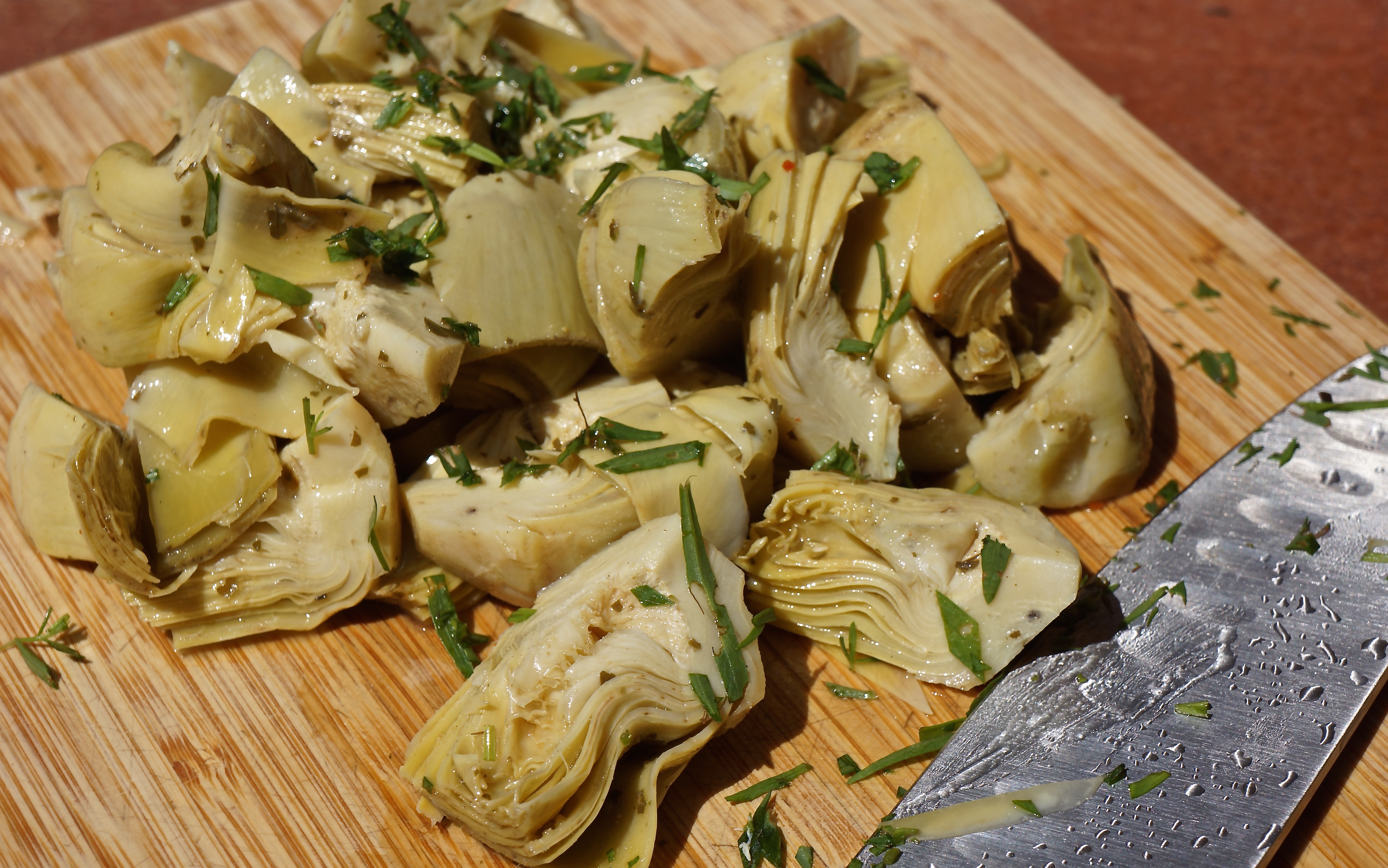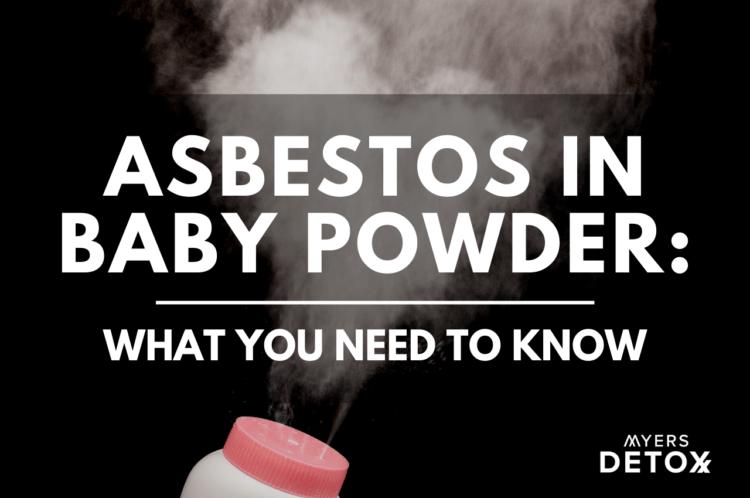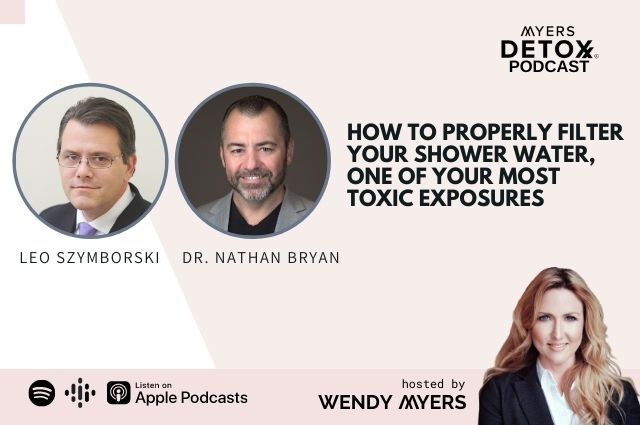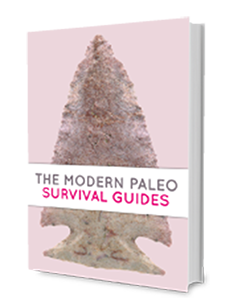The Benefits of the Modern Paleo Diet
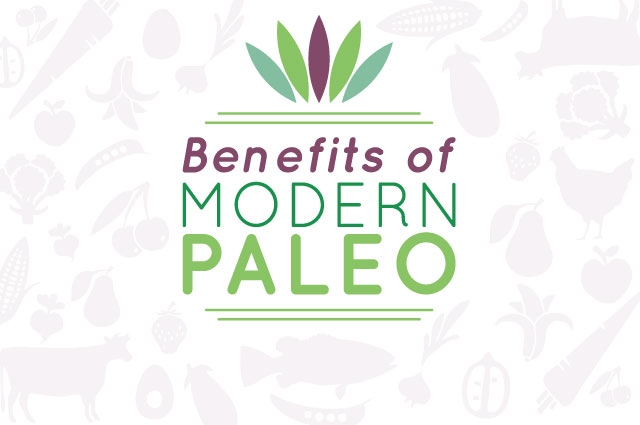
The Modern Paleo Diet has so many health benefits including disease prevention, resolution of numerous health conditions, reduced acidity, weight loss, improved blood lipids, regulation of blood sugar, reducing inflammation and longevity.
Countless people, including myself, have recovered their health on the Paleo diet simply because they nourished their bodies with the proteins, fats and nutrients the body requires to function properly. The Paleo diet has not only stood the test of time, but also the rigors of scientific scrutiny.
I call my version of Paleo diet the Modern Paleo diet because it allows certain modifications to include relatively new, modern foods like dairy, potatoes and gluten-free grains in the diet if you tolerate them well. These foods are not on the traditional, basic Paleo diet. However, I don’t see any reason to exclude these foods if you don’t have a problem with them like a sensitivity or allergy. The Modern Paleo diet will be discussed in detail over the next few blog posts.
Prevention of Disease
The medical establishment and the government have recommended we eat a low fat, high carbohydrate diet for the last few decades. These recommendations have been an abysmal failure and our health has suffered drastically. If this diet worked, our health would have improved as a nation and a planet. Today we suffer so many health problems mainly due to our diet:
- Heart disease kills four out of ten people.
- Fifty percent of people in the US will receive a cancer diagnosis.
- Diabetes and insulin resistance have skyrocketed. Diabesity (obesity + diabetes) affects more than one billion people worldwide, including 100 million Americans and 50% of Americans over 65.
- Autoimmune disease affects 10% of the population (multiple sclerosis, rheumatoid arthritis, Crohn’s disease, ulcerative colitis, etc.)
- Depression, the leading cause of disability, affects 10% of the population. Other mental illnesses are drastically on the rise.
- The silent killer, high blood pressure, affects almost 30% of adults in the US.
- Obesity is deadlier than smoking, with two-thirds of the populace being overweight or clinically obese.
Decades of research by Dr. Loren Cordain and others demonstrate that hunter-gatherers typically were virtually free (though not completely) from the chronic diseases and health conditions that are epidemic in Western society. Research indicates that it is our modern diet, full of processed foods, refined grains, trans fats and sugar, that is at the root cause of degenerative diseases such as obesity, cancer, diabetes, heart disease, autoimmune disease, Alzheimer’s, depression and infertility. The Paleo diet prevents these chronic diseases and health problems because it is the only diet that is nutritionally complete and works with your genetics to create superior health. You eat exactly what you were designed to eat.
Many proponents of the Paleo diet then make the invalid inference that consuming a diet mostly devoid of sugar, grains, legumes, and dairy will free us of the diseases of civilization. This is, however, incorrect. This is just a correlation. You can’t say for sure that if you eat a Paleo diet, or any diet for that matter, that you’re going to avoid the diseases of civilization. No diet can guarantee one will live a disease-free life, but the Paleo diet will give you nutritional insurance against disease. When you eat a diet that meets all of your nutritional requirements you will be far less susceptible to disease. There are many factors involved in disease. Most notably, environmental toxicity is a major underlying cause of disease — a factor destroying human health only in the last hundred years. Cavemen and traditional peoples did not have to contend with this problem.
One would be foolish to think that all of the modern diseases – diabetes, heart disease, cancer, depression, autoimmune disease, etc. — are unrelated conditions that don’t share a common cause. This is one of the most glaring mistakes conventional medicine makes. This assumption is a convenient fiction created by the pharmaceutical industry (and perpetuated by the medical establishment) to sell and market different drugs for different conditions.
The truth is that while these conditions are different, they all share a common cause: the modern lifestyle. Poor diet, nutrient deficiencies, heavy metal toxicity, environmental chemicals, stress, lack of sleep, lack of or the wrong type of exercise and toxic medications all directly contribute to the problems that are ruining our health.
The conventional approach is to treat each of these various problems with different drugs, and ignore the fundamental factors that are at the root of all of them. That has been a stupendously unsuccessful approach. It’s time to replace it with a more holistic view of health, and to empower people to prevent and treat disease without unnecessary drugs or surgery. This is where the Modern Paleo diet and lifestyle come into play.
Resolution of Health Problems
Apart from my own story of recovered health, I hear of countless stories on other Paleo sites about people who adopt a Paleo diet and slowly regained their health. From my own experience, my energy has increased. My mental clarity has dramatically increased (when I was vegan I could barely remember one minute to the next). My thyroid and adrenal problems are slowly but surely recovering. Nixing most of the grains and sugar from the diet go a long way to recover these glands, which are stressed and fatigued in an alarming number of people (also due to nutrient deficiencies and toxicity).
Many of my clients have seen their autoimmune disorders improve. Others have had their depression and addiction slowly subside. Still others have seen their cholesterol numbers decline dramatically; all the while they are porking out on eggs and red meat. Constipation and IBS and other gut issues respond beautifully to the Paleo diet. diet is a very powerful medicine.
The carbohydrates (unlimited fruits and veggies) in the Paleo diet allow a healthy, slow rise in your blood sugar and insulin levels. Consuming sugar and excessive grains promote rapid rises in blood sugar and insulin. Excessive insulin and blood sugar levels are known to promote a cluster of diseases called Metabolic Syndrome (obesity, hypertension, undesirable blood cholesterol and other blood lipid levels, Type 2 diabetes and gout). This is one of the top killers in our society. It leads to heart disease, heart attacks, hardening of the arteries, among other diseases and ultimately, death. Once these diseases set in they can be difficult to reverse. One must commit themselves to a strict Paleo diet and lifestyle changes. The wiser choice is to eat the Paleo diet with its high fiber, protein, and omega-3 fat content that will help to prevent Metabolic Syndrome.
The Paleo diet is very effective at lowering blood pressure. This is quite understandable once you realize that fructose (found in most processed foods) is a major promoter of hypertension — far more so than salt. The connecting link between fructose consumption and hypertension lies in the uric acid produced. Uric acid is a byproduct of fructose metabolism, and increased uric acid levels drive up your blood pressure. The Paleo diet mitigates this obvious cause of high blood pressure and other health problems.
Today, the gut is one of the most diseased organs in the body and is the root of many diseases, namely autoimmune. Why are our colons so diseased? Overconsumption of sugar and grains that turn into sugar feed pathogenic bacteria in the gut, which produce acids and toxins that pollute the entire body. Another problem is the consumption of gluten-containing grains.
Gluten, the protein found in high concentrations in wheat and a few other grains, cause inflammation in the colon, even in very small amounts. This inflammation prevents the absorption of nutrients and can lead to leaky gut, where holes basically form in the colon, leaking out toxins and large undigested food particles. These toxins can contribute to a myriad of physical and mental illnesses. The food particles and undigested proteins lead to allergic and immunogenic responses that tax the body’s energy and immune system. The beauty of the Paleo diet is it excludes grains from the diet. However, if you don’t have intestinal problems or sensitivities, non-gluten grains, in limited amounts, can be included in the Modern Paleo diet. Gluten is unhealthy for everyone so it’s out. Sorry. For more information on gluten and the health problems associated with gluten, see my blog post Gluten Sensitivity Affects 1 in 3.
The high soluble-fiber content of the Paleo diet will improve most diseases of the gastrointestinal tract. Constipation, IBS, diarrhea, colitis, and so many other intestinal problems are reaching epidemic proportions where diets high in grains abound.
Reduced Acidity
Acidic bodies lead to disease. Due to the unlimited amounts of veggies, and fruits in moderation (due to high sugar content), permitted on the Paleo diet, your body will be slightly alkaline — meaning that diseases and symptoms of acid/alkaline imbalance (osteoporosis, kidney stones, hypertension, stroke, asthma, insomnia, motion sickness, inner ear ringing, and asthma) will improve. What many don’t understand is that you can increase your body’s alkalinity while eating acidic foods like animal protein.
There is a myth in nutritional circles that acidic is bad and alkaline is good. The truth is, you need a balance. Different foods have been classified to be ‘alkalizing’ (such as fruit and vegetables) or ‘acidifying’ (such as eggs and meats). This simply is not true. Your body shifts from alkaline to acid states all the time depending on many factors: activity of your autonomic nervous system, the type of energy production, hormones, respiration, kidney function, many of which change according to daily cycle, season, weather and your activity. Depending on all those factors, an apple, which is considered to be an ‘alkalizing’ food, can make your body acid. For instance, you can eat fruit, which is alkaline, but the sugars in it feed yeast and other pathogenic bacteria in the intestines, which create acidic waste products. Vice versa, a piece of meat, which is considered to be ‘acidifying’, can make your body alkaline. Only your body knows how to use foods at any given moment of your life. Your job is simply to eat a balanced diet of acid and alkaline foods, which the Paleo diet provides.
Weight Loss
You’ll lose weight but gain so much more on the Paleo diet. A common side effect of balancing your body’s chemistry with the Paleo diet is weight loss, as the two tend to go hand-in-hand. One explanation for this is that you don’t really get fat from eating too much and exercising too little. Nor do you get fat from eating fat. What does cause your fat tissue to accumulate and hold on to fat is eating too many carbohydrates, which are limited on the Paleo diet.
When you eat the diet your body is meant to eat, your waistline will eventually look like a caveman’s! If you’re trying to lose weight, you couldn’t be on a better diet. No one has healthily lost weight following the fat-free lies we’ve been force fed over the past two decades. The Paleo diet is wonderfully full of healthy fats, but you still lose weight! Pounds come off because the Paleo diet stabilizes your blood sugar by removing grains and sugar from your diet — the foods that are causing the obesity epidemic around the world. You lose weight while not going hungry because your body is receiving the nourishment it requires. One pound a week lost is the norm and considered best for long-term weight loss. And you can eat as much as you want — until you’re 80% full! That’s right! You can eat all the kale your heart desires.
Conventional wisdom tells us that to lose weight we must burn more calories than we take in and that the best way to accomplish this is to eat a plant-dominated, low-fat diet. The first part of this equation is still true — a net caloric deficit must occur in order for weight to be lost. However, the experience for most people on low-calorie, low-fat diet is unpleasant. They are hungry all the time, and for the vast majority, any weight lost is regained rapidly or within a few months of the initial loss. When you deprive the body of what it needs nutritionally, the metabolism slows to preserve nutrients. Then when you begin eating normally (as low fat diets cannot be sustained), you gain the weight back because your metabolism has slowed.
There is an alternative. A diet that emulates what our hunter-gatherer ancestors ate — a high-protein, high-fruit and veggie diet with moderate to higher amounts of fat, but with increased quantities of healthful omega-3 and monounsaturated fats. Protein has two to three times the thermic effect of either fat or carbohydrate, meaning that it revs up your metabolism, speeding weight loss. A lot of calories are burned to process protein. Protein also has a much greater satiety value than either fat or carbohydrate, so it puts the brakes on your appetite. Finally, numerous recent clinical trials have shown high-protein, low-glycemic load diets to be more effective than low-fat, high-carbohydrate diets in promoting weight loss and keeping it off.
The resulting equation is simple: fructose (found in most processed foods) and dietary carbohydrates (sugars and grains, which break down into sugar) lead to excess body fat, obesity and related health issues. No amount of exercise can compensate for this damage because if you eat excessive fructose and grains — the primary ingredients NOT found in the Paleo diet — it will activate hormones and programming to cause your body to become, and remain, fat.
Additionally, one of the secret keys to weight loss is to maintain a steady blood sugar…
Steady Blood Sugar
Maintaining a steady blood sugar is one of the most important things you can do for your health. Why? Many of the diseases of Western society, namely diabetes, heart disease and cancer, are due in part to eating foods that cause the blood sugar to fluctuate. When we eat sugar or grains, our body quickly break these foods down and our blood sugar spikes.
Another problem when we ingest too much sugar is our pancreas then has to release insulin to get this sugar out of the blood where it can cause damage and into the cells to be used for energy. In diabetes, this process has been so abused that the pancreas can no longer make enough insulin or the cells become insensitive to the insulin preventing the sugar from entering the cells.
Even whole grains, which many have been led to believe are healthy are no longer healthy once they are ground into flour. Guess what? They’re not whole grains anymore and are broken down by the body very quickly, causing a spike in blood sugar. Yes, whole grains are healthier than refined grains, but grains as a whole are not very nutritious, so this isn’t saying a whole lot. But this is not to say you should never consume grains. Here and there is fine if you tolerate them well. The idea is to eliminate or keep foods to a minimum that will alter your blood sugar levels too much. The Paleo diet provides the perfect solution by restricting the diet to primarily meat, seafood, vegetables and fruit — foods that stabilize blood sugar.
Improve Blood Lipids
The Paleo diet improves blood lipids better than statin (cholesterol-lowering) drugs! Contrary to what the American Heart Society would have you believe, saturated fats do not cause high cholesterol and heart disease. The medical establishment is still operating on outdated science from 40-50 years ago. Flour, sugar, ‘heart healthy’ vegetable oils and trans fats are the dietary causes of heart disease and high cholesterol.
Sugar and grains, which break down into sugar in the blood, are akin to chards of glass in our veins. The sugar cuts the insides of our veins causing all kinds of damage. The body then produces cholesterol to repair the damage. Trans fats (not on the Paleo diet) are responsible for 50% of heart disease. These fats get inside the cells, hardening them and preventing normal metabolism. Vegetables oils like corn, canola, soy, sunflower, and safflower are highly inflammatory, contributing to high cholesterol and the heart disease process.
When you ingest these substances, your liver has to produce cholesterol to repair the damage they do to your veins. Your liver makes 80% of the cholesterol that is in your body. It makes cholesterol to repair your veins and other jobs. It’s this build up of cholesterol in the veins that contributes to heart disease. Dietary intake of cholesterol only accounts for 20-25% of your cholesterol. It is fallacy to think that avoiding eggs, butter, and red meat – incredibly nutritious foods (yes, butter is very nutritious) — will have a marked effect on your blood lipids. This is a lie perpetuated by doctors who don’t really know about nutrition and the latest studies. Many of my clients are thrilled to find that they can once again eat nutritious red meat and butter and see their blood lipid numbers decline.
According to Chriskresser.com:
Studies on low-carbohydrate diets (which tend to be high in saturated fat) suggest that they not only don’t raise blood cholesterol, they have several beneficial impacts on cardiovascular disease risk markers. For example, a meta-analysis of 17 low-carb diet trials covering 1,140 obese patients published in the journal Obesity Reviews found that low-carb diets neither increased nor decreased LDL ‘bad’ cholesterol. However, they did find that low-carb diets were associated with significant decreases in body weight as well as improvements in several cardiovascular risk factors, including decreases in triglycerides, fasting glucose, blood pressure, body mass index, abdominal circumference, plasma insulin and c-reactive protein, as well as an increase in HDL ‘good’ cholesterol.
High cholesterol in and of itself is just a symptom — the damage inflicted by the Standard American diet (high in grains and sugar) is the underlying cause. When you remove sugar and grains from your diet, you will usually see your cholesterol and other blood lipids go in positive directions, barring no other cause besides diet.
Reduced Inflammation
Inflammation refers to irritation, perhaps swelling and even damage, to one or more types of tissues in the body. It can affect almost any tissue, from the muscles and bones to the brain and nervous system. Many health authorities agree that inflammation is a serious problem, causing obesity and disease, in millions of people worldwide. Yet the medical profession offers little for these people except for highly toxic anti-inflammatory drugs.
The Paleo diet mitigates a lot of dietary mistakes and pitfalls that contribute to inflammation, the underlying cause of obesity and many diseases, namely heart disease. The Paleo diet’s high omega-3 fat content will improve most of the “itis” or inflammatory diseases. Dietary causes of inflammation include:
- Too much table salt (sea salt ok)
- Caffeine in any form
- Eating fried foods in some cases (Paleo avoids vegetables oils used for frying)
- Trans fats
- Too much fruit (high sugar) or fruit juice
- Sugar
- Alcohol
- Eating too many grain-containing foods such as bread, pastries and pizza
- Too much raw food (very difficult to digest and obtain nutrients from)
- Not eating enough cooked vegetables (which maximize mineral absorption)
- Vegetarian and vegan diets deficient in vital nutrients
- Dehydration or drinking the wrong type of water (stick to spring water)
Omega-3 fats are anti-inflammatory, while omega-6 fats in abundance tend to cause inflammation. The key is to keep them in the correct ratios. The correct proportion of omega-6 to omega-3 fats is a 1:1 or 2:1 ratio. Most Americans have a 20:1 to 40:1 ratio of omega-6 to omega-3 fats. These fats compete for the same receptor sites in the cells. If you eat too much omega-6 you’ll block the absorption of omega-3, even if you take fish oil or eat plenty of fish.
The Paleo diet, with its steady stream of grass fed meats and pasture raised eggs provide plenty of omega-3 and their anti-inflammatory benefits. Grass fed meat is very different from conventionally raised factory farmed meats. Grass fed meats are very high in omega-3, low in omega-6, but much lower in fat than conventionally raised meat. The fat tends to be orange in color and actually have a bit of an ‘off’ gamey taste. Fat that is white is high in omega-6. This is the kind of fat you see in conventionally raised meats. It is much higher in inflammatory omega-6 (due to an unnatural grain diet), contributing to inflammation. The consumption of factory farmed meats is what is greatly contributing to health problems and inflammation in our nation.
Eggs suffer the same problems. Factory farmed eggs are low in omega-3. Chickens must eat their natural diet of bugs and worms to have a high omega-3 content, the diet they receive if grass fed or pasture raised. Conventionally raised and even organic chickens eat a diet of grains, making them very unhealthy. Organic eggs are better for you, but not as healthy as pasture raised. Meat and eggs are not bad for you. The key is to consume the right kind of eggs and meat high in anti-inflammatory omega-3.
Longevity
If you eat a diet that is nutritionally dense, meets all of your nutritional requirements, and keeps your blood sugar and weight stable, you’re most likely going to live a long life. But by all means, let’s not kid ourselves. No diet can guarantee a disease-free existence. So many other factors come into play regarding how long we are on this earth. One can be felled by stress, faulty genetics, taking too many toxic medications, chronic infection, toxicity, smoking and drinking, etc. Even too much exercise can stress your body out and be bad for you (too much depletes vital minerals)! It’s not enough to eat a healthy diet. You must also lead a healthy lifestyle. However, a healthy diet is a major component, the foundation if you will, upon which you build your health and longevity. When you meet all of your body’s nutritional requirements, you will be setting yourself up for the longest life that you could possibly live. The Modern Paleo diet provides this foundation for longevity. Sorry. Had to throw that in.
Is there anything I left out of this article? Do you have anything to add to the conversation? Do you not agree? Please let me know by leaving a comment below.
Click Here for References+
1. Centers for Disease Control and Prevention. Hypertension Among Adults in the United States, 2009–2010. October 2012.
http://www.cdc.gov/nchs/data/databriefs/db107.htm
2. Chris Kresser Podcast. RHR: What Science Really Says About the Paleo diet — With Mat Lalonde. June 13, 2012.
http://chriskresser.com/rhr-what-science-really-says-about-the-paleo-diet-with-mat-lalonde
3. Cordain, Loren. The Paleo Diet Revised. 2nd Edition. Houghton Mifflin Harcourt, 2010.
4. Fallon, Sally. Nourishing Traditions. 2nd Edition. New Trends, 1999.
5. Frassetto LA, Schloetter M, Mietus-Synder M, Morris RC Jr., Sebastian A. Metabolic and physiologic improvements from consuming a paleolithic, hunter-gatherer type diet. Eur J Clin Nutr. 2009 Aug;63(8):947-55. doi: 10.1038/ejcn.2009.4. Epub 2009 Feb 11.
6. Jönsson T, Granfeldt Y, Ahrén B, Branell UC, Pålsson G, Hansson A, Söderström M, Lindeberg S. Beneficial effects of a Paleolithic diet on cardiovascular risk factors in type 2 diabetes: a randomized cross-over pilot study. Cardiovasc Diabetol.
2009 Jul 16;8:35. doi: 10.1186/1475-2840-8-35.
7. Hyman, Mark, MD. The Diabesity Epidemic Part I: How Diabetes And Obesity Are Ravaging America Today. December 10, 2009.
http://www.huffingtonpost.com/dr-mark-hyman/the-diabesity-epidemic-pa_b_386066.html
8. Kresser, Chris. The diet-Heart Myth: Cholesterol and Saturated Fat Are Not the Enemy.
April 19, 2013.
http://chriskresser.com/the-diet-heart-myth-cholesterol-and-saturated-fat-are-not-the-enemy
9. ** The diet-Heart Myth: Why Everyone Should Know Their LDL Particle Number.
April 26, 2013.
https://chriskresser.com/the-diet-heart-myth-why-everyone-should-know-their-ldl-particle-number
10. Ravnskov, Uffe, MD, PhD. The Benefits of High Cholesterol. The Weston A Price Foundation. June 24, 2004.
https://www.westonaprice.org/health-topics/modern-diseases/the-benefits-of-high-cholesterol/
11. Rogers, Sherry. The Cholesterol Hoax. Prestige Publishing, 2008.
12. Santos FL, Esteves SS, da Costa Pereira A, Yancy WS Jr, Nunes JP. Systematic review and meta-analysis of clinical trials of the effects of low carbohydrate diets on cardiovascular risk factors. Obes Rev. 2012 Nov;13(11):1048-66. doi: 10.1111/j.1467-789X.2012.01021.x. Epub 2012 Aug 21.
13. Taubes, Gary. Why We Get Fat. Anchor, 2011.
14. Thepaleodiet.com. The Paleo diet Premise. http://thepaleodiet.com/the-paleo-diet-premise/





